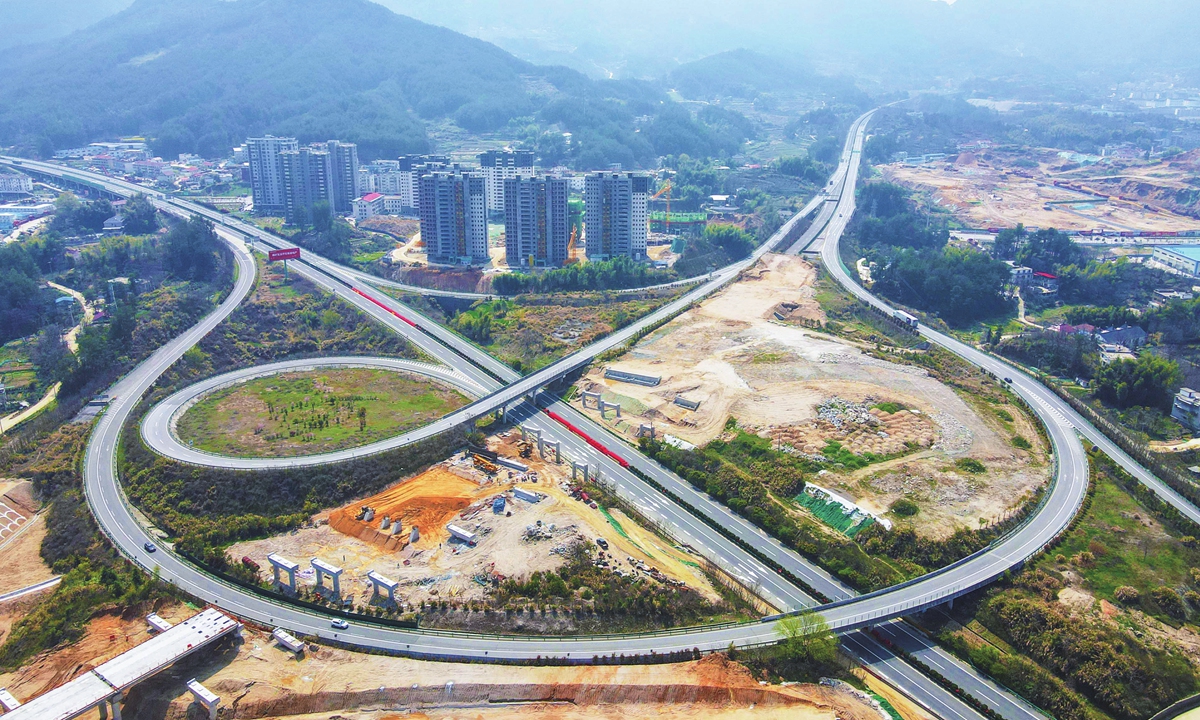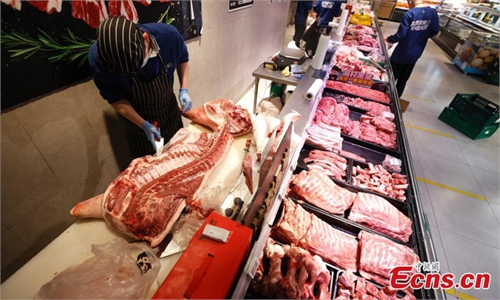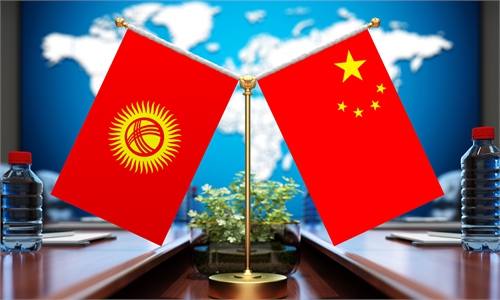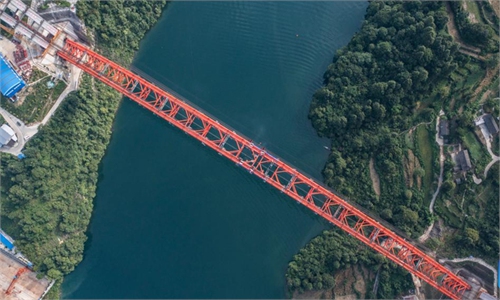China's top planner vows to bolster infrastructure investment to support economic recovery

A highway to Wuhan, Central China's Hubei Province is under construction in Anqing, East China's Anhui Province on March 28, 2022. With major infrastructure projects kicking off across multiple provinces in China, fixed-asset investment is on a fast track, and it's expected to drive economic growth. Photo: cnsphoto
Officials from China's top economic planner, the National Development and Reform Commission (NDRC), on Tuesday vowed to further bolster investment in major infrastructure projects to help stabilize the economy amid lingering downward pressure.
The remarks showed renewed urgency for stabilizing growth, particularly through investment, after a recent wave of COVID-19 outbreaks added new pressure on the economy following a flash of optimism in the wake of rosy June economic data, experts said.
Yuan Da, an official from the NDRC, said during a press conference on Tuesday that the NDRC will fully implement requirements that COVID-19 should be prevented, the economy should be stable and development should be secure, noting that efforts will be made to keep the economy operating within a reasonable range, while striving for the "best results."
Luo Guosan, also an NDRC official, said during the conference that the construction of major projects is important to support growing domestic demand and stabilize the country's economic foundations.
The comments are being read by experts as a signal that China will cling to economic stabilization amid lingering downward pressure in July despite better-than-expected data in June.
Slowing economic indicators in July and recent COVID-19 outbreaks in certain Chinese cities showed that economic stabilization should still be put on the top of the priority list, as China is still under economic pressure judging by the COVID-19 situation and external geopolitics, Hu Qimu, chief research fellow at the Sinosteel Economic Research Institute, told the Global Times on Tuesday.
"At a time when COVID-19 cases might break out sporadically, overseas supply chains are recovering and the Biden administration is blocking Chinese markets, government-led investment should be the only certain momentum for economic growth," Hu said, adding that the infrastructure workload could boost demand for industrial products and help stabilize employment.
The year-on-year growth of above-scale industrial added value and retail sales both slowed in July compared with June. But infrastructure investment remained a highlight, with the sector growing 7.4 percent in the first seven months, compared with 7.1 percent in the first six months.
According to experts, the infrastructure sector grew for various reasons, such as accelerating issuance of government special-purpose bonds and lower prices for construction materials, which made engineering companies more eager to land projects.
Luo disclosed at the conference that as of the end of July, the quota of 3.45 trillion yuan ($508 billion) of special-purpose bonds for project construction this year had almost been fully issued. He also said that the NDRC recently instructed local governments to submit the third tranche of special-purpose bond projects to central government departments for approval.
Chen Jia, an independent analyst, said that these bonds made a big contribution to driving and expanding efficient investment in the first half of this year, as the pace of such investment was significantly ahead of schedule compared with past years.
"The effects of special-purpose bonds in driving investment in the second half are expected to be slightly weaker than in the first half, but the 'long tail effect' will still exist," Chen said.
Chen said that to maximize the stimulus effect of special-purpose bonds, officials should channel investment into strategic and emerging industries.
China is also using other methods to push infrastructure construction. For instance, Luo disclosed that China has raised about 300 billion yuan by issuing financial bonds and other methods. The money will be used to replenish project capital in key infrastructure areas.
Luo also said the NDRC plans to further strengthen promotion for project construction, including making good use of policy financial tools, enhancing capital and land usage guarantees, and accelerating preliminary work for the projects to ensure investment grows at a steady pace throughout the remainder of the year.
Tian Yun, a veteran macroeconomist, said that as infrastructure capital gets in place, infrastructure investment might show double-digit growth in the third quarter.
Global Times



